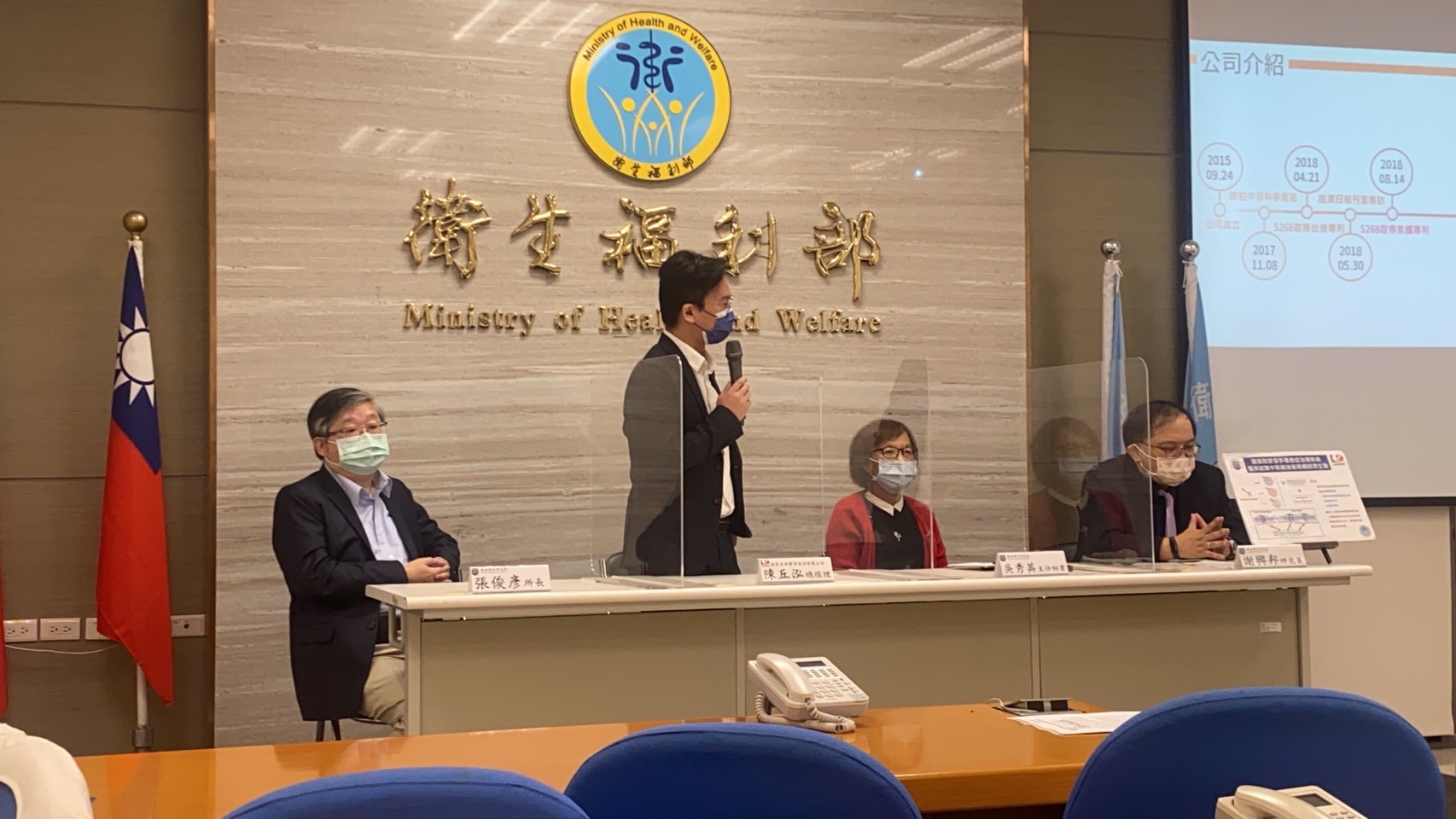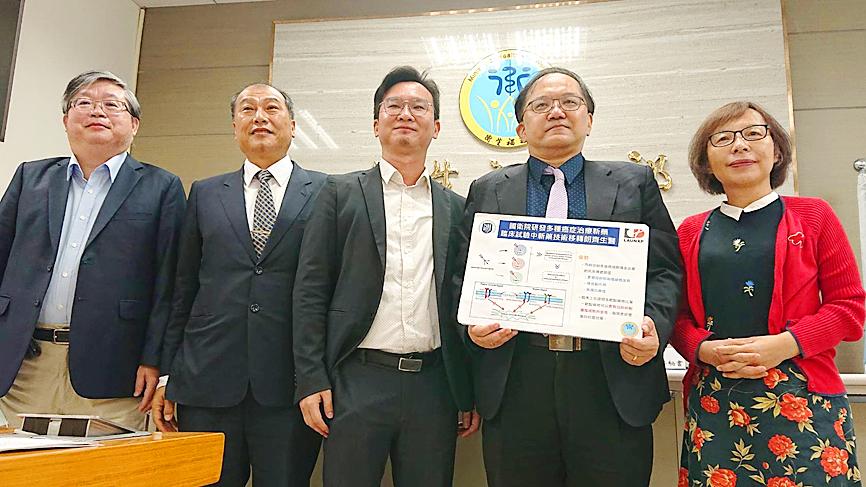-
國衛院臨床試驗中抗癌新藥 技術移轉朗齊生醫
經濟日報 / 記者謝柏宏/即時報導
國家衛生研究院今(22)日宣布,該院生技與藥物研究所新藥研發團隊,運用激酶蛋白結構與活性最佳化的策略,成功開發『多靶點激酶臨床藥物DBPR114』,並已在2021年9月技術移轉給朗齊生物醫學公司,將可展開人體第一期臨床試驗。國衛院表示,DBPR114對於腫瘤生長之動物模型有顯著的藥效活性,包括人類口腔癌、胃癌、肝癌、大腸直腸癌、胰臟癌、膀胱癌、攝護腺癌以及急性骨髓性白血病等,尤其在肝膽腸胃相關癌症特別有效。這項藥物已於2017年取得美國和台灣試驗中新藥(IND)審查通過。
國衛院新藥研發團隊投注於蛋白質激酶為標的,利用高速平行合成技術及藥物結構設計,成功發展出新穎多靶點激酶抗癌藥物DBPR114。此新穎抗癌藥物在低濃度下(0.1~100nM)可抑制至少15種致癌蛋白激酶的活性,並且在八種以上腫瘤生長之動物模型均有顯著的藥效活性,包括人類口腔癌、胃癌、肝癌、大腸直腸癌、胰臟癌、膀胱癌、攝護腺癌以及急性骨髓性白血病等致死率極高的癌症,極具新藥發展潛力。
此項重大成果榮獲2016年第26屆王民寧獎和2018年科技部未來科技突破獎的殊榮,並且獲得中華民國、美國、歐盟(指定11國家)、中國及南韓等多國專利。
朗齊生物醫學公司運用獨有的篩選技術投入新藥研發,在二類新藥及全新藥都有突破性進展,並積極在癌症多靶點小分子及大分子專利布局。多靶點激酶抑制劑在腫瘤研究中的療效、控制耐受性和抗藥性方面具有一定的優勢,預期可有更好的治療效果。極具市場潛力的DBPR114於技術移轉後,將由朗齊生醫承接後續新藥開發工作,接續推動研發成果產業化,國衛院亦將持續扮演協助的角色,期能透過技術移轉接力合作,能聯手推動DBPR114藥物能早日上市,嘉惠於病人,串聯起生醫製藥研發鏈,對產業創新動能注入實質效益,創造台灣新藥開發之國際競爭力。
-
Cancer drug to start human trials next year
A new cancer drug under development could begin phase 1 testing in humans next year after it obtained good results in treating eight types of cancers in animal tests, the National Health Research Institutes (NHRI) announced yesterday.
Hsieh Hsing-pang (謝興邦), a researcher at the NHRI’s Institute of Biotechnology and Pharmaceutical Research (IBPR), said at a media briefing that 40 late-stage cancer patients who have not been helped by any available treatment, but are still in decent physical condition, are to be recruited for phase 1 clinical trials next year.
The new drug, known as DBPR144, is a small molecule known as a multi-target kinase inhibitor, Hsieh said.
From left, National Health Research Institutes’ (NHRI) Institute of Biotechnology and Pharmaceutical Research (IBPR) Director Chang Jang-yang, Launxp Biomedical Co board member Ko Chun-pei and general manager Chen Chiu-heng, IBPR researcher Hsieh Hsing-pang and NHRI Chief Secretary Wu Hsiu-ying attend a news conference in Taipei yesterday.
Photo: CNA
A kinase is an enzyme that controls important cell functions, and it can be active in the growth of some types of cancer cells.
The eight types of cancers against which it showed success through in vivo studies in animals were pancreatic, oral, gastric, liver, bladder, prostate and colorectal cancer, as well as acute myeloid leukemia, Hsieh said.
“Because it is particularly effective in gastroenterology-related cancers, we are likely to first target patients with pancreatic, liver, bladder and gastric cancer in the initial clinical trial,” he said.
Multi-target drugs, which take aim at several targets rather than more common medications that only target a single biological substance, more effectively inhibit cancer cell proliferation and overcome drug resistance, he said.
During the phase 1 trial, the volunteers are to be given DBPR114 once a week to determine safe dosages of the drug, Hsieh said.
Chen Chiu-heng (陳丘泓), general manager of Launxp Biomedical Co, which will be responsible for manufacturing the drug, said cancer patients from Taiwan and Australia are to be recruited to take part in the initial trial, which is expected to take two years.
Phase 2 and phase 3 trials, which should each take two to three years, will focus on cancers that responded promisingly to the drug in phase 1.
At least six years will be needed to complete human trials, Chen said.
“This novel, multi-targeted agent is our new hope for treating cancer patients,” IBPR Director Chang Jang-yang (張俊彥) said.
Cancer has been the top cause of death in Taiwan for 41 years, he said, and the five-year survival rates among patients with major types of cancer remained low, especially the 5 percent rate for people with pancreatic cancer.



